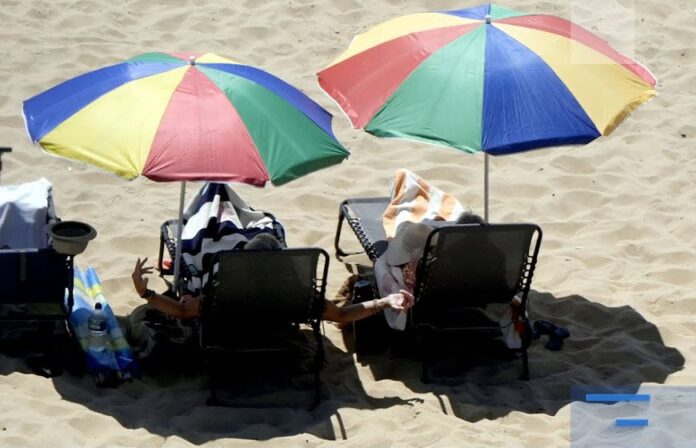Temperatures are set to soar to 33°C as parts of England brace for deadly heat and water shortages
Parts of England are bracing for the third major heatwave of the summer, as amber heat health alerts and hosepipe bans spread across the country. The UK Health Security Agency (UKHSA) issued its warning at noon on Friday, covering London, the East and West Midlands, the South East, South West, and East of England until 9am on Monday.
With temperatures expected to peak at 33C over the weekend, authorities are warning that vulnerable groups — especially the elderly and people with health conditions — face a serious risk of illness or death due to the heat.
The Met Office said while the mercury may fall just short of the 34.7C recorded earlier in July, this heatwave will be more geographically widespread.
To compound the issue, hosepipe bans have come into force in some regions, as water companies scramble to protect dwindling supplies. Yorkshire Water implemented restrictions first, effective Sunday, and South East Water will follow with bans in Kent and Sussex from 18 July.
Under the bans, residents must not use hosepipes for watering gardens, washing cars, filling pools, or cleaning outdoor surfaces. Offenders risk fines up to £1,000.
South East Water said water demand had reached record highs since May, leaving reservoirs and underground aquifers struggling to cope. “This situation has left us with no choice,” the company said in a statement, “but to restrict the use of hosepipes and sprinklers so we can help our water sources recover.”
The UKHSA’s alerts include a yellow-level warning for the north-east, north-west and Yorkshire and the Humber, starting midday Friday. The alerts stress the “increased risk of mortality” due to heat, particularly in vulnerable populations.
Steve Cole, policy director at the Royal Society for the Prevention of Accidents (RoSPA), urged the public to take the heat seriously. “Heat is no longer just a holiday perk,” he said. “It’s a growing public health risk. We’re seeing more frequent and intense heatwaves, both here and globally. The data shows a clear rise in heat-related illness and fatalities.”
He added that staying hydrated, seeking shade, and wearing sunscreen should now be considered essential summer precautions.
The rising heat has prompted renewed calls to futureproof Britain’s infrastructure and housing. Urban designers and environmentalists say cities and towns must adapt to these “deadly new normals” through better shade, ventilation, and access to clean water.
The Met Office warned that while this heatwave may not break records, it poses a greater cumulative risk due to its persistence and geographical reach. As climate change intensifies, officials say such heatwaves will become more common, and preparations must keep pace.
Residents are being urged to check on elderly neighbours, limit outdoor activity during peak heat, and follow official guidance as the weekend unfolds.
